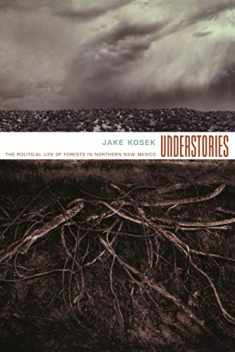
Stealing Shining Rivers: Agrarian Conflict, Market Logic, and Conservation in a Mexican Forest
ISBN-13:
9780816535576
ISBN-10:
0816535574
Edition:
Reprint
Author:
Molly Doane
Publication date:
2017
Publisher:
University of Arizona Press
Format:
Paperback
224 pages
Category:
Natural Resources
,
Forests & Rainforests
,
Nature & Ecology
,
Conservation
,
Cultural
,
Anthropology
FREE US shipping
Book details
ISBN-13:
9780816535576
ISBN-10:
0816535574
Edition:
Reprint
Author:
Molly Doane
Publication date:
2017
Publisher:
University of Arizona Press
Format:
Paperback
224 pages
Category:
Natural Resources
,
Forests & Rainforests
,
Nature & Ecology
,
Conservation
,
Cultural
,
Anthropology
Summary
Stealing Shining Rivers: Agrarian Conflict, Market Logic, and Conservation in a Mexican Forest (ISBN-13: 9780816535576 and ISBN-10: 0816535574), written by authors
Molly Doane, was published by University of Arizona Press in 2017.
With an overall rating of 4.4 stars, it's a notable title among other
Natural Resources
(Forests & Rainforests, Nature & Ecology, Conservation, Cultural, Anthropology) books. You can easily purchase or rent Stealing Shining Rivers: Agrarian Conflict, Market Logic, and Conservation in a Mexican Forest (Paperback) from BooksRun,
along with many other new and used
Natural Resources
books
and textbooks.
And, if you're looking to sell your copy, our current buyback offer is $0.3.
Description
Winner, Best Social Sciences Book (Latin American Studies Association, Mexico Section) What happens to indigenous people when their homelands are declared by well-intentioned outsiders to be precious environmental habitats? In this revelatory book, Molly Doane describes how a rain forest in Mexico’s southern state of Oaxaca was appropriated and redefined by environmentalists who initially wanted to conserve its biodiversity. Her case study approach shows that good intentions are not always enough to produce results that benefit both a habitat and its many different types of inhabitants. Doane begins by showing how Chimalapas—translated as “shining rivers”—has been “produced” in various ways over time, from a worthless wasteland to a priceless asset. Focusing on a series of environmental projects that operated between 1990 and 2008, she reveals that environmentalists attempted to recast agrarian disputes—which actually stemmed from government-supported corporate incursions into community lands and from unequal land redistribution—as environmental problems. Doane focuses in particular on the attempt throughout the 1990s to establish a “Campesino Ecological Reserve” in Chimalapas. Supported by major grants from the World Wildlife Foundation (WWF), this effort to foster and merge agrarian and environmental interests was ultimately unsuccessful because it was seen as politically threatening by the state. By 2000, the Mexican government had convinced the WWF to redirect its conservation monies to the state government and its agencies. The WWF eventually abandoned attempts to establish an “enclosure” nature reserve in the region or to gain community acceptance for conservation. Instead, working from a new market-based model of conservation, the WWF began paying cash to individuals for “environmental services” such as reforestation and environmental monitoring.


We would LOVE it if you could help us and other readers by reviewing the book
Book review

Congratulations! We have received your book review.
{user}
{createdAt}
by {truncated_author}




